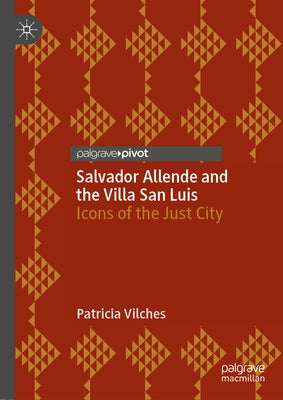Description
Through the history of this housing complex, this book illuminates Salvador Allende's dedication to the imperative of the right to the city for Chile's marginalized people. Built in affluent Las Condes in Santiago, on what is arguably the most expensive parcel of land in Chile, the Villa San Luis was one of Salvador Allende's most visible and dramatic social projects. Allende's six-year term was ended in the middle by a military coup d'état on 11th September 1973. Yet, material culture from Villa San Luis remains to convey the legacy of his commitment to providing disadvantaged families with dignified housing. It is a national lieu de mémoire and an iconic space, a reminder of a truly remarkable innovation in social housing and of Allende's personal and political commitment to making Santiago a just city. Postcoup, the remains of the complex also relate the wider injustice of the Pinochet regime. Many of its families were violently evicted during the dictatorship. Some were dispossessed, taken away from Las Condes in garbage trucks, and dumped in poor communities around Santiago. The land was usurped by Pinochet on behalf of the army and later sold to developers to construct high-rise symbols of a new, neoliberal Chile. Over the decades, however, former residents fought back and, in 2020, they succeeded in making its one remaining structure, remnants of Block 14, a memorialized place of justice and reconciliation. It now a national monument and museum.
Author: Patricia Vilches
Publisher: Palgrave Pivot
Published: 01/02/2023
Pages: 149
Binding Type: Hardcover
Weight: 0.79lbs
Size: 8.27h x 5.83w x 0.44d
ISBN13: 9783031189371
ISBN10: 303118937X
BISAC Categories:
- Social Science | General
- Art | General
- History | General
About the Author
Patricia Vilches earned her Ph.D. in Romance Languages and Literatures from the University of Chicago. She is Professor of Spanish and Italian at Lawrence University, from which she retired. Her research focuses on Latin American cultural history, socio-political literary studies, material culture, and space studies with an emphasis on nineteenth-century Chile, through the work of Alberto Blest Gana, and twentieth-century Chile through Salvador Allende, Violeta Parra, Víctor Jara, and the Nueva Canción Chilena. Her publications include Blest Gana via Machiavelli and Cervantes: National Identity and Social Order in Chile (Cambridge Scholars 2017); an edited volume on Parra, titled Mapping Violeta Parra's Cultural Landscapes, to which she also contributed a chapter (Palgrave McMillan 2018). She has also edited and contributed a chapter to the book Negotiating Space in Latin America (Brill 2020). Vilches edited and contributed a chapter to Blest Gana at 100, published by Open Cultural Studies (2021). This latter piece explores the social space of nineteenth-century Santiago, with themes that include the marketplace, consumerism, and sensorial stimuli. Vilches's current research is on Chilean twentieth-century cultural and musical history via spatial, material, and geographical mapping.

